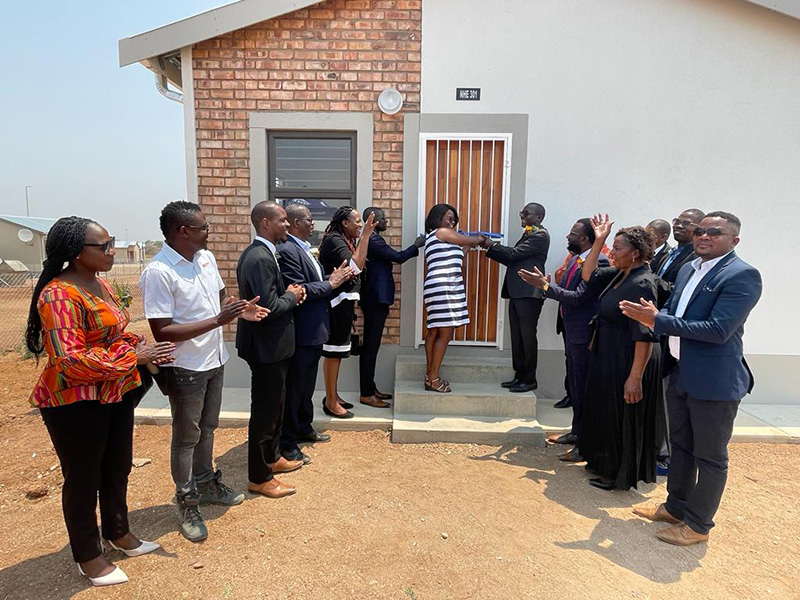Due to lack of serviced land and funding, the Namibia Housing Enterprise (NHE) only managed to provide 896 houses since 2016. The NHE is a state-owned enterprise mandated to deliver housing to low- and middle-income Namibian households by undertaking and financing housing projects.
NHE spokesperson Tuafi Shafombabi confirmed these low figures to New Era.
Meanwhile, the World Bank, through the Namibia Country Private Sector Diagnostic (CPSD), launched last week, stated from its inception in 1993 to mid-2019, NHE developed only 17 113 houses country-wide, many of which are two- and three-bedroom units, and few of which are affordable to lower-income groups.
“The NHE has focused most of its delivery on civil servants but is increasingly focusing its projects down-market, with simple bedsits and one- and two-bedroom houses,” reads the report.
The CPSD’s objective is to identify near and medium-term reform opportunities to revitalise the private sector and help reposition Namibia’s growth on a green, resilient, and inclusive trajectory.
The World Bank is also of the view that NHE could potentially contribute more toward meeting the demand for formal housing.
The bank noted that an opportunity exists for the NHE to expand its housing delivery contribution through a better-focused strategic approach such as development of strategic partnerships including public private partnerships (PPPs) to recapitalise existing and financing new housing projects.
However, such an approach, the World Bank said, would require interventions for NHE to enhance the delivery of housing through its programmes.
Mass housing failure
The bank’s diagnostic added that public sector efforts to develop mass housing have not been successful to date. The mass housing programme was intended to deliver 185 000 houses at a rate of over 10 000 a year between 2013 and 2030 through co-financing with the private sector.
The programme did not yield the expected scale of delivery and utilisation of houses constructed through this scheme. Sector assessments were affected by affordability constraints, as most units were too expensive to ensure effective demand from households.
The World Bank said several factors explain why these public sector programmes were not successful.
“They had municipalities operate as retail finance intermediaries for household-level loans instead of building capacity of specialist financial service providers, they lacked sufficient wholesale financing to grow microcredit books, and they were insufficiently rigorous in loan book management, capital recovery, and scaling of rollout,” the report reads.
Meanwhile, the bank noted there are several private initiatives, including a few in trial phase that offer lessons for scaling private participation if constraints to urban land delivery are addressed.
“Efficient delivery of serviced urban land will enable these developers to provide more housing stock for middle- to low-income households,” the World Bank proposed.



